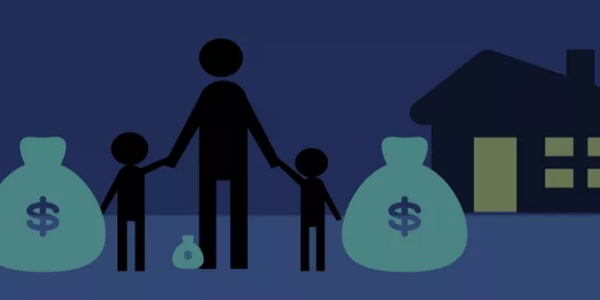What is more short-sighted? UBI, or certain critics of it?
What is the PURPOSE of life, again?

<u><em><strong>CAPTION:</strong>
<a href="https://www.vox.com/policy-and-politics/2017/7/20/15821560/basic-income-critiques-cost-work-negative-income-tax" target="_blank">The 2 most popular critiques of basic income are both wrong</a>
</em></u>
UBI is the acronym of Universal Basic Income: every adult citizen receiving an unconditional, constant amount of money, every month, no matter what, enough to cover the bare, bare necessities. UBI is one of the recurring topics of this website because, in my opinion, it is something that, for the first time in history, will be made half possible, half unavoidable by the combination of eco-constraints and digital technologies.
A long essay at versobooks, that elaborates two main theses, one great, the other not:
- There is no more real innovation
- Calls for a universal basic income are short-sighted
I fully agree with the first thesis. The second, instead, is in my opinion short-sighted, and lacking imagination.
There is no more real innovation
Here is, in three quotes, why I like the first part, and agree with it:
- Recent technological advances have been concentrated in very specific areas of human life - enclosed, more or less, on our smartphone screens - and have failed to ripple through the entire production process, driving breakthroughs in adjacent fields.
- Silicon Valley, far from being populated by figures such as “Doc” from Back to the Future, is filled instead…with engineers spending time “studying slot machines to figure out how to get people addicted to their website.”
- By presenting a dynamic capitalism on the brink of full automation, ‘automation discourse’ simply gentrifies the death of the future itself.
Many of my own posts about innovation and Silicon Valley carry pretty much the same message, with plenty of real-world examples. Check the m out.
The ‘Techno-populist’ Case for Basic Income
I also agree with the initial description of the current state of thing:
“deeper institutional dynamics at the heart of contemporary capitalism see individuals moving out of civil society while states increasingly step down from their interventionist role."
“This exploration [redraws] the social in accordance with the conservative principles of a restricted government, rather than progressive ideas of an expanded social safety net."
Or a narrow-minded view of life, problems and solutions?
The rest of the essay, however, is the part I find suffering of lack of imagination. Sometimes even in the arguments _criticized by the essay. Even “QE for the people”, as effective as it may be as a slogan, is limiting. It constrains discourse.
The first short-sighted, narrow-minded issue I perceive in that essay is the backward, usually anglo/US dogma that welfare and UBI are mutually exclusive.
This is typical of societies that have either rejected, or never reached, the previous state of progress, the one that much of the twentieth century was about, and technically limited to achieve: pensions, universal healthcare, that kind of stuff. That should be a given that has nothing to do with UBI.
UBI and welfare must be orthogonal
UBI may be impossible, but the only reason to verify if it is, is as the next step. UBI is about work, not about substituting welfare, or the social contract and vision behind it.
It is NOT an “either this OR that” issue
“Politicizing the framework we use to allocate people to production” makes sense. Making of that the only, or even the main goal of economics, politics and anything in between, that is limiting the purpose of human beings to production, means, besides being sad as hell, being still stuck in some corner of 1800, and not the best one.
“Taylorism did not simply mean that workers suffered from a lack of pay, but also from a lack of control both within and outside the workplace? Such a lack is only scantly answered by the mantra of free money."
See above. By all means, let’s promote cooperatives, abolition of corporate robothood and so on. But adding UBI to that, guarantee that only cooperatives that do useful work will exist, and that, in general, work conditions and priorities will be much easier for workers to control, or tolerate. UBI reduces lack of control by workers.
“The economic logic behind dumping a load of toxic waste in the lowest wage country is impeccable. Here, the price system, and the price system alone, is invested with legitimacy to determine what work should be remunerated and where it should be done."
SURE. Let’s change the laws that make it possible then. Because, what does this has to do with UBI anyway?
“A commitment to a “post-scarcity” society implies a duty to collectively define the types of jobs society needed, including the categories of needs these would address."
Sure. So what? Again, see above. This is an orthogonal issue, not an antagonist of UBI. And benefits from it, as UBI greatly reduces the need to create artificial needs to stuff in other people’s throats, just because one needs a salary.
Seriously. WHY these concerns?
Who writes this, why, and how to help
I am Marco Fioretti, tech writer and aspiring polymath doing human-digital research and popularization.
I do it because YOUR civil rights and the quality of YOUR life depend every year more on how software is used AROUND you.
To this end, I have already shared more than a million words on this blog, without any paywall or user tracking, and am sharing the next million through a newsletter, also without any paywall.
The more direct support I get, the more I can continue to inform for free parents, teachers, decision makers, and everybody else who should know more stuff like this. You can support me with paid subscriptions to my newsletter, donations via PayPal (mfioretti@nexaima.net) or LiberaPay, or in any of the other ways listed here.THANKS for your support!